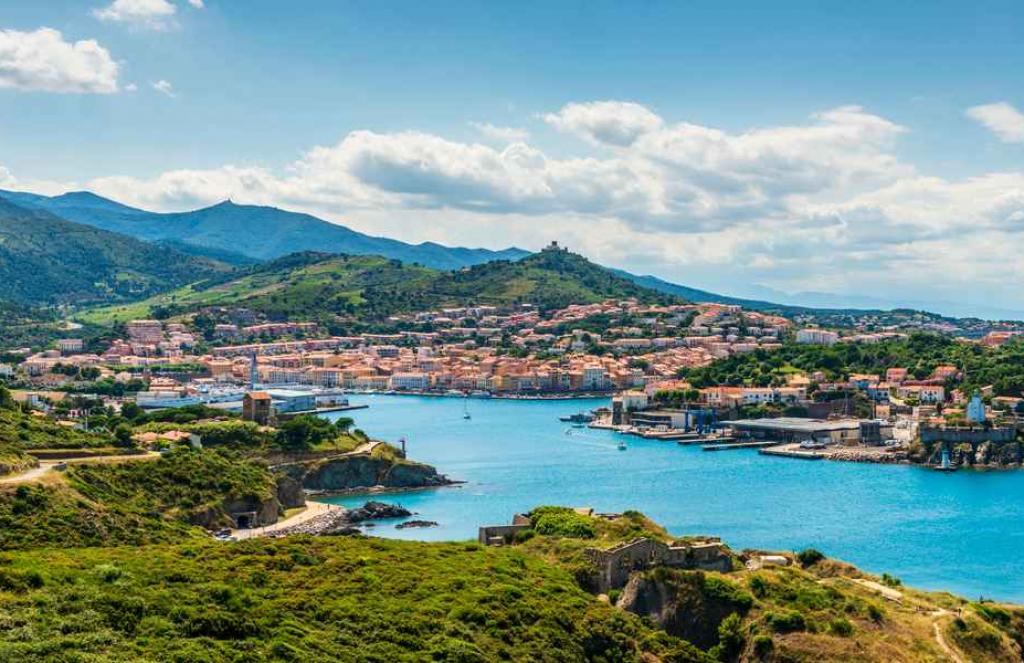Thessaloniki gets ready for its metro launch in November
The underground rapid transit lines have been under construction for almost two decades due to various project delays
 TheMayor.EU logo
TheMayor.EU logo 
The seaside town of Port-Vendres is one of the towns affected by the court decision, Source: Depositphotos
The Catalonian Government across the border has expressed “regret” about this. Could this sour the bilateral relationship?
Not quite a diplomatic row but a grudge between the regional government of Catalonia (Generalitat) and the French authorities seems to be brewing up. It's the result of The Administrative Court of Montpellier prohibiting the use of the Catalan language in the plenary sessions of several town halls in the Department of Pyrénées-Orientales.
That small region which lies just north of the eastern stretch of the Spanish-French border is unofficially known as Northern, or French Catalonia due to the identity, heritage and traditions of the local inhabitants. Since the 17th century, it has been part of France, as decided by the Treaty of the Pyrenees which ended the Thirty Years’ War.
Catalan was previously permitted to be spoken in plenary sessions on the condition that interventions be translated into French. This was allowed by the so-called Molac Law, introduced in 2021 to protect and promote the use of regional languages in France. The law, however, was recently overturned as unconstitutional.
The argument for the decision went that French remained the only recognized language in the country and it was unlawful for it to take a secondary status in official dealings, such as the local plenary sessions. The procedure that was used at the town halls in five towns of Pyrénées-Orientales was to have the sessions in Catalan with accompanying translation into French. The court decision stated that it should be the other way around.
French policies since the 19th century have gone towards centralization and crafting of a singular national identity at the expense of regional identities and languages. That policy has been the mainstay of basically all governments regardless of their political orientation.
Molac Law, named after a Breton activist and politician who introduced the bill to force regional authorities to recognize the determination of regional identities seems to have been short-lived in effect, though.
Patrícia Plaja, spokesperson for the Catalan government, quoted by The Catalan News, said that the executive "regrets" the decision of the French courts to ban plenary sessions in Catalan. For the Generalitat, the decision follows "a very restrictive reading of the French Constitution" which also "contradicts the European spirit of respect for plurality."
The Catalonian authorities promised support to the local government of the towns of Elna, Els Banys, Tarerac, Portvendres, and Sant Andreu de Sureda in Pyrénées-Orientales.
The issue also reached Brussels, where the European Free Alliance Group (EFA) in the European Parliament called on the French state to stop the discrimination of regional and minority languages. EFA is a political alliance that defends the interests of regionalists and native minorities. Its Secretary-General is Jordi Solé, who is Catalan.

The underground rapid transit lines have been under construction for almost two decades due to various project delays

Now you can get your wine in Talence by paying directly in Bitcoin

That’s because the state has to spend money on updating the railway infrastructure rather than subsidizing the cost of the popular pass

Rethinking renewable energy sources for the urban landscape

The examples, compiled by Beyond Fossil Fuels, can inform and inspire communities and entrepreneurs that still feel trepidation at the prospect of energy transition

Now you can get your wine in Talence by paying directly in Bitcoin

The 10th European Conference on Sustainable Cities and Towns (ESCT) sets the stage for stronger cooperation between the EU, national and local level to fast track Europe's transition to climate neutrality.

At least, that’s the promise made by the mayor of Paris, Anne Hidalgo

The underground rapid transit lines have been under construction for almost two decades due to various project delays

At least, that’s the promise made by the mayor of Paris, Anne Hidalgo

Hostal de Pinós is located in the geographical centre of the autonomous region

Despite its church-y name, the district has long been known as the hangout spot for the artsy crowds

Urban dwellers across the EU are having a say in making their surroundings friendlier to people and the environment.

Forests in the EU can help green the European construction industry and bolster a continent-wide push for architectural improvements.

Apply by 10 November and do your part for the transformation of European public spaces

An interview with the Mayor of a Polish city that seeks to reinvent itself

An interview with the newly elected ICLEI President and Mayor of Malmö

A conversation with the Mayor of Lisbon about the spirit and dimensions of innovation present in the Portuguese capital














